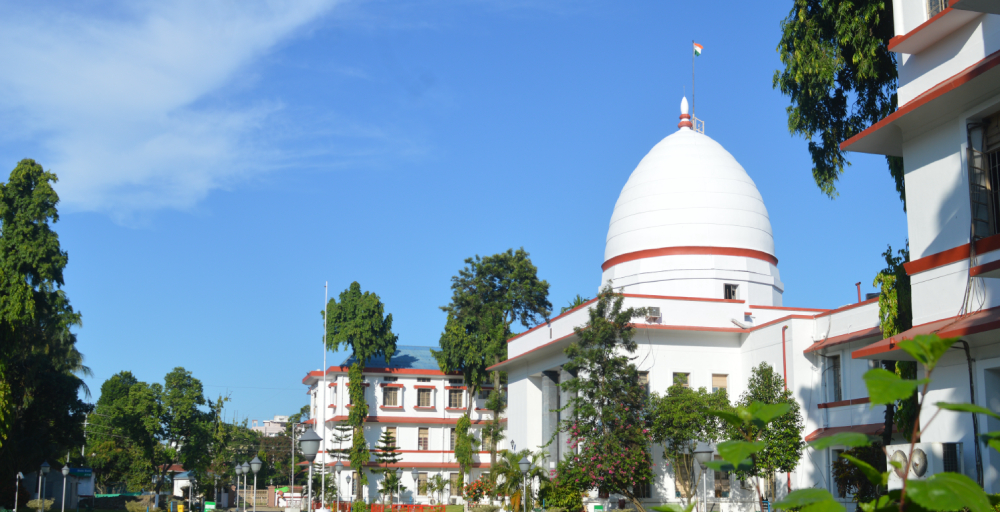In a matter invoking grave concern, the Gauhati High Court has asked the Assam State Legal Services Authority to inquire about the status of detenues under preventive detention laws, whether they have been detained for more than 3 months without a confirmation order from the Advisory Board and the state government. While dealing with a habeas corpus petition, the bench of Chief Justice Sandeep Mehta and Justice Mitali Thakuria held that the detenu was detained illegally since his detention was not confirmed by the Advisory Board and subsequently the state government, as required not just by the law but also the Constitution.
The habeas corpus petition was filed by the detenu’s sister. Sukumar Das was detained under Prevention of Illicit Traffic in Narcotic Drugs and Psychotropic Substances Act. The detention order was passed on August 24, 2022 by the Home Department of the state. However, the court was informed that no order of confirmation of the detention order was given to the detenu. The confirmation order is supposed to confirm the detenu’s detention beyond the period of 3 months. A communication from the state government indicated that no order of confirmation has been issued yet in this matter which would authorize the detention of Das beyond 3 months.
Article 22 of the Constitution of India governs the detention of a person under the laws of preventive detention. Article 22(4) of the Constitution of India clearly postulates that no law providing for preventive detention shall authorize the detention of a person for a longer period than three months, unless the Advisory Board has reported that there is sufficient cause for such detention.
Further, even the Act under which Das was detained, provides under section 9(f) that upon receiving the report of the Advisory Board, if the Board has opined that there is no sufficient cause for detention of the person concerned, the appropriate Government is under an obligation to revoke the detention order. If the Board opines that there is sufficient cause for detention then the government “may” confirm the detention for a period as it may deem fit.
“Thus, once the report of the Advisory Board is received, the State Government is under an obligation to pass an order of confirmation or revocation, as the case may be, of the initial detention order and the said order must be issued within the period of three months because the initial detention cannot exceed the said period as prescribed under Article 22(4) of the Constitution of India,” the court held.
The Act also stipulates situations where a person can be detained for more than 3 months without the Advisory Board’s report. However, even that does not stipulate detention for more than 6 months. If confirmed by the Advisory Board, the person can be detained for a maximum period of 1 year.
“Thus, under the scheme of the 1988 Act, the detaining authority is under an obligation to call for the report of the Advisory Board within the prescribed time frame (eleven weeks) and to issue an order of confirmation, within the period of three months as provided under Article 22(4) of the Constitution of India, failing which, the further detention of the detenu would be rendered totally illegal,” the court pointed out.
The court said that the detenu’s situation was “alarming” since he was kept behind bars for more than 8 months. “Every moment of custody of the detenu beyond the period of three months from the date of the initial order of detention without the order of confirmation being passed, amounts to illegal detention pure and simple,” the court held.
The court further pointed out that a similar situation arose in Writ Appeal No.299/2022 (Sharukh Ahmed @ Muktar -Vs- The Union of India & Ors.) yet, the state authorities have not rectified their blunder in issuing detention orders.
The court deemed Das’s detention to be illegal in gross contravention of Article 22(4) of the Constitution. The court directed that Rs.50,000 be paid as compensation to Das as a symbolic compensation for his grossly illegal detention beyond 3 months.
The court further directed the Assam State Legal Services Authority to seek “a report from all prisons across the State of Assam regarding the status of detenues, who have been detained under the preventive detention laws, so as to find out whether any similar situation as has been noticed by this Court, prevails and to take remedial measures, if so required.” The court sought the compliance report on June 23.
The order may be read here.
Related:
Citizens for Justice and Peace intervenes as Assam beggar receives FT notice
Supreme Court punishes judge for denying bail, sends him to judicial academy
4 years behind bars, bail granted to two accused arrested under UAPA

